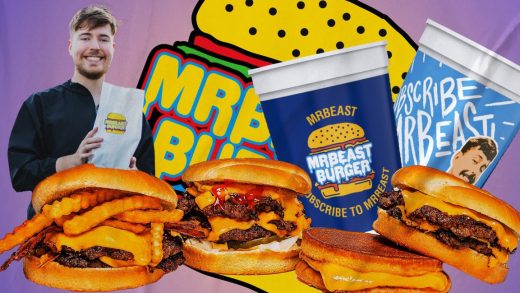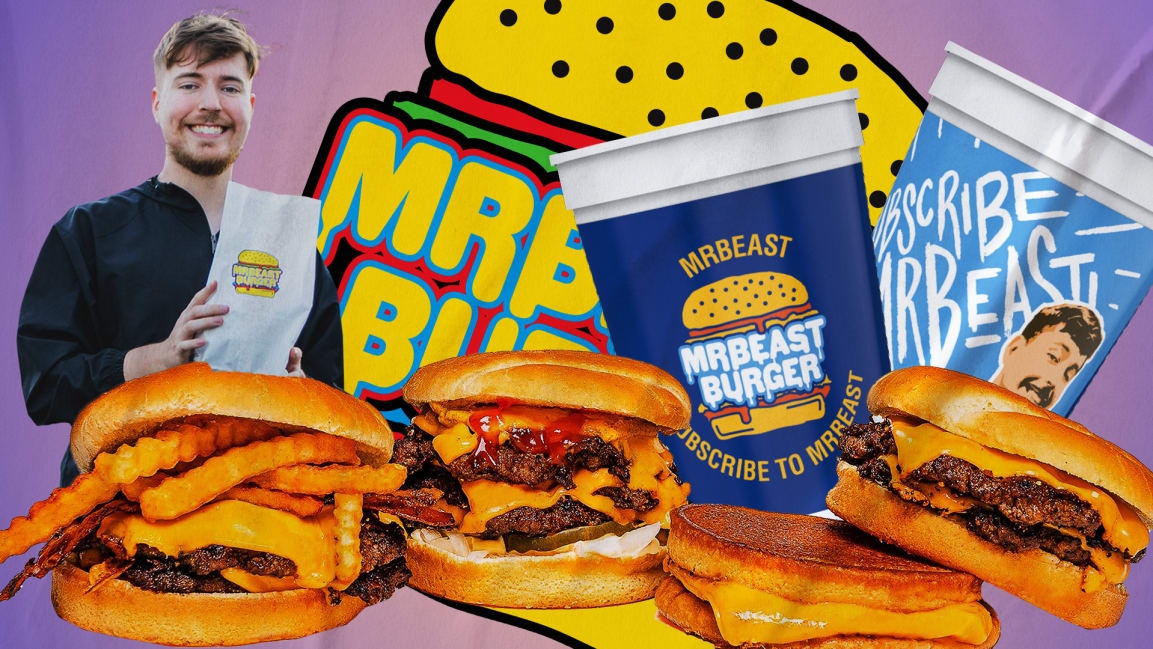Celebrities are reinventing the restaurant business with Instagram, ghost kitchens, and FOMO
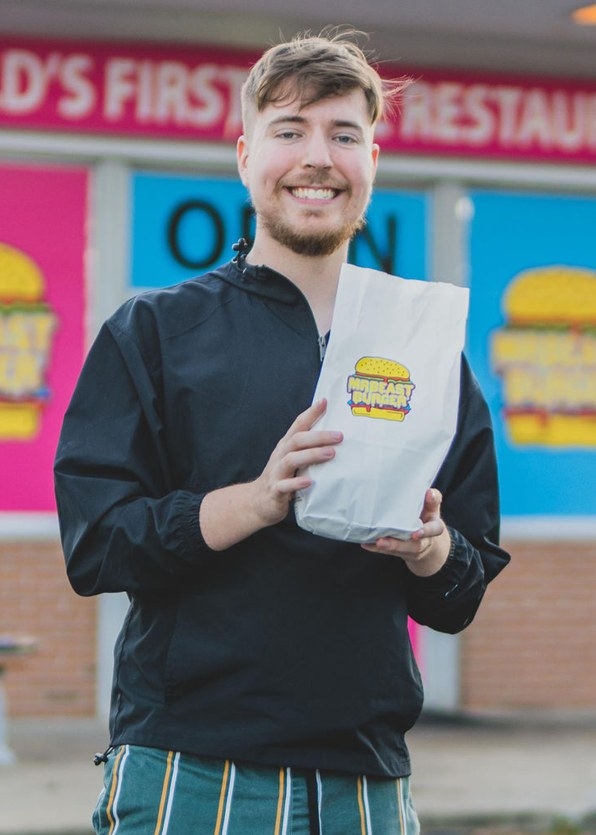
When MrBeast Burger launched last December, the digital restaurant (or kitchen, depending on your preference)—which is accessible via a standalone app and online delivery services like PostMates and DoorDash—was preparing food in about 300 kitchens around the country. That number is now closer to 600, and is expected to hit 1,000 by the end of the year.
Even to someone like Robert Earl, that kind of overnight growth and reach is a marvel. The former Hard Rock Cafe CEO and Planet Hollywood founder has a new company, Virtual Dining Concepts, that is behind MrBeast Burger. “If you look at London, we were full with a two-hour line (at Planet Hollywood) for several years,” Earl said over the phone recently. “But we probably catered to less than a quarter a percent of the population. If we had the digital know-how then, we would have taken Planet to them.”
Virtual Dining Concepts, which Earl founded with his son Robbie, is doing just that: taking digital restaurant franchises to the people, by capitalizing on the combined forces of social media, celebrity, and digital food models that have taken hold—and wildly accelerated—during the pandemic. The idea is to cut down on the usual headaches and expenses of running a traditional restaurant (hiring front-of-house staff, dealing with permits) while allowing existing restaurants to create new revenue streams. This concept has been readily embraced during the pandemic, which has battered the traditional restaurant industry.
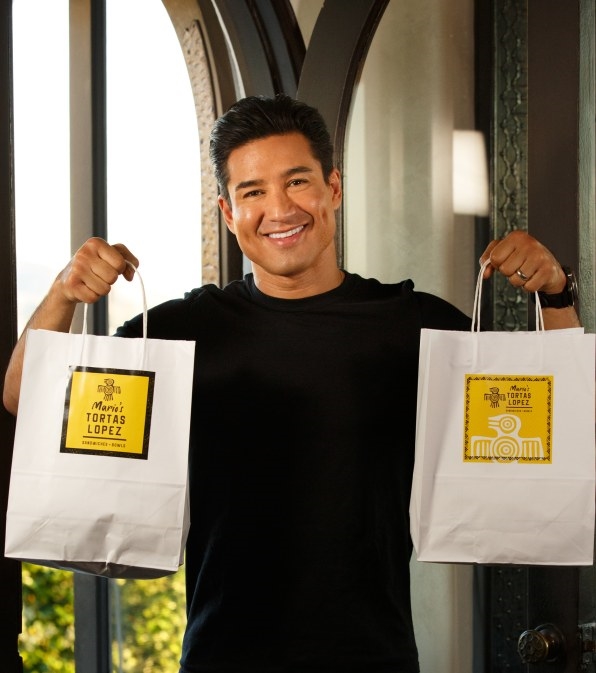
Virtual Dining Concepts trains chefs in already operating kitchens—most of which belong to Earl—in how to prepare food for the company’s virtual brands, and then provides all the branding and take-out materials. It also negotiates deals with delivery services like DoorDash, using its growing portfolio to increase visibility for its brands on those apps. In addition to MrBeast Burger, the company also launched a baked goods line for Mariah Carey (Mariah’s Cookies); a Mexican food brand for TV host and actor Mario Lopez (Mario’s Tortas Lopez); and a subway sandwich chain for Jersey Shore star Pauly D (Pauly D’s Italian Subs).
Pauly D, Earl says, “oozes subway sandwiches.”
The ghost kitchen craze has ensnared other splashy names, too. The Office star B.J. Novak recently teamed with Otium chef (and, spoiler alert, winner of Netflix’s chef competition show The Final Table) Tim Hollingsworth to launch an Instagram-based, digital restaurant that features gourmet takes on favorite chain-restaurant dining items like Outback Steakhouses’s Bloomin’ Onion. Followers of Chain’s Instagram account are told when dishes will be dropped, and the food is then available for pick up at a West Hollywood location. In addition, rapper Wiz Khalifa started Hotbox by Wiz, a virtual restaurant that features fast-casual dishes “personally curated by Wiz with input from fans,” according to a press release.
Celebrities using their fame to front a chain restaurant is certainly nothing new, dating at least back to the country singer Minnie Pearl’s eponymous fried chicken chain in the 1960’s. Planet Hollywood, Earl’s see-and-be-seen hot spot in the 1990’s, was co-owned by Sylvester Stallone, Bruce Willis, and Arnold Schwarzenegger. The modern iteration of this phenomenon would be the burger chain Wahlburgers, started by Mark Wahlberg and his brothers.
The new world of food-as-entertainment
But the new wave of celeb-owned digital restaurants is much more integrated with a celebrity’s greater business, operating as a key platform and point of engagement within their burgeoning empires as opposed to unrelated venture that at best yields the odd TV spin-off. The reality series Wahlburgers, of course, ran on the A&E cable network from 2014 to 2019. According to WME partner Amir Shahkhalili, the show had an impact on Wahlberg’s burger business–“When you’re making franchise deals, saying you have a show on A&E every week is a huge thing.” Or was. “Cable TV was such a strong medium back then. Streaming was not where it is.” Shahkhalili admits that today, the marketing that’s driving this new wave of digital restaurants is more digital and organic. Indeed, in many ways, these businesses are themselves a form of entertainment that feed back into an influencer’s other efforts, creating a symphony of awareness that goes far beyond, say, the photo ops that Stallone and crew posed for at Planet Hollywood openings.
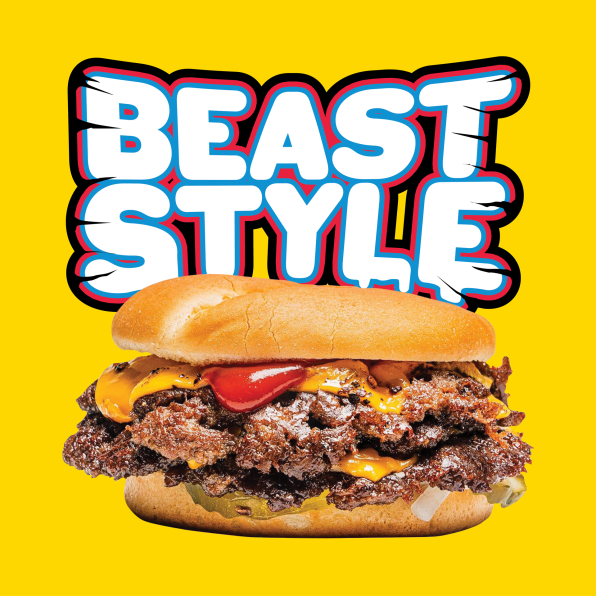
Take MrBeast Burger. Two months before it launched, a MrBeast Burger pop-up restaurant was set up in North Carolina where Jimmy Donaldson, aka MrBeast, handed out free burgers and wads of cash. The line to pick up food was 1,000 cars long. But more importantly, the day and its buzz provided fodder for Donaldson’s social media platforms. “He used that to create content for a December 19 launch,” Earl says. “It was one of the most amazing ways to launch a new restaurant brand.”
Andrew Chason, cofounder of Fresh Mgmt, which represents chefs such as Roy Choi and Top Chef alum Carla Hall, says it “felt more similar to a streetwear drop than it did a restaurant opening.”
Guests, too, posted videos of themselves pulling up to the restaurant and picking up bags of food. That dynamic lives on. Indeed, ordering a MrBeast Burger is as much about the food as the social-media opportunity: unwrap burger, take video, post.
Chason says these ventures are “almost like a content play. You’re putting something out there that allows people to engage. It’s experiential and it’s tangible, and it’s something that people will have. It continues to build that connection with the influencer’s audience. I don’t think that’s the main reason you had celebrities investing in restaurants in the past.”
Data is the secret ingredient
Historically, Chason says, when A-listers became involved in restaurants it was typically because “it was something they were really passionate about and they wanted a piece of a restaurant, or maybe they worked in the business before they became successful in whatever their craft was, so they wanted to open something.” Today, there is “a little bit more of a promotional side to this.”
Celebs and their business partners can also be more targeted about whom they’re serving—and where—due to all of the data and analytics culled from a celebrity’s social media following, combined with delivery service data. Where are MrBeast’s fans primarily located? What types of food do they generally order? (Apparently not fine French cuisine.) All of this goes into deciding what sort of business to embark on.
“They’re equally food and equally tech companies,” says Toby Borg, head of global client strategy at CAA. “That’s the difference. It’s really about distribution and delivery—the tech side of this—as well as the food.”
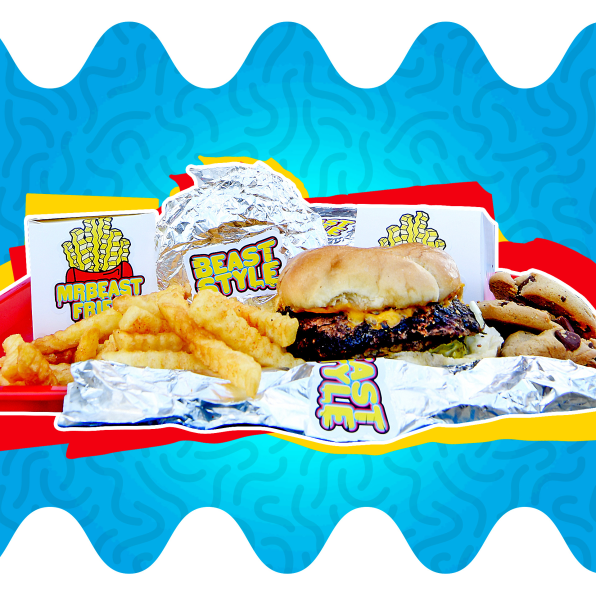
Almost always, distribution means scale. MrBeast Burger was set up within 30 days. The fact that it will soon be available in almost every nook of the country (and parts of Canada) points to the power of virtual cuisine services. Shake Shack, which launched in 2004, has just over 300 locations all these years later. In-n-Out, the cultish, Southern California burger joint that similarly prides itself on fresh ingredients and great service, is older than McDonald’s, yet has less than 400 stores.
Borg says today’s rapid buildouts are appealing for celebrities as it translates to the opportunity for quicker financial success and a quicker brand hit. The main challenge is quality control. Even Earl, whose entire business model is built on creating overnight franchises, says that MrBeast Burger may have grown too quickly and that “given time, we would have done it slower.”
“You have to have a very good training program (for chefs),” Earl says. “We’re getting better and better on that. But you have to open things in a certain manner.” He points to another one of his virtual kitchen brands, Guy Fieri’s Flavortown Kitchen, as following a more manageable timeframe. “We started with nine, then went to 39, then 69, then 99 . . . . “
The power of celebrity—and FOMO
Emerging brands like Chain are also exploiting another benefit of being a digital-based business: gamification and exclusivity. To join the Chain club—which it very much feels like—you have to follow the company’s Instagram account by request (note: I have yet to be given the nod). Only then are followers alerted to food drops, which quickly sell out. Other Instagram-based delivery companies follow this sudden-drop model, including My Cookie Dealer and Allie’s Banana Bread, upping the companies’ anticipation and FOMO allure.
Allie Chernick, who started her Brooklyn-based banana bread company in 2017 after enough friends raved about her grandmother’s recipe, said the company only took off after she was forced to shut down her kitchen due to COVID-19 in March 2020. She spent the following months upping her social media game, following and commenting on other food influencers, and building her network. By the time she was able to get back in the kitchen, she had 10,000 followers, up from 500 pre-pandemic.
The first time she announced a drop, it sold out in minutes. She’s also benefited from the direct access Instagram provides to almost anybody. After DM’ing Alan Cumming and Andy Cohen, she sent each a loaf, resulting in ooh’ing posts from the celebs trying her bread.
Chain similarly benefits from its A-list friends network. Mindy Kaling, John Mayer, Kaitlyn Dever, Ike Barinholtz, and Kiernan Shipka have all posted images of the brand’s red-and-white takeout boxes on social media.
But perhaps the biggest driver behind celebrity ghost kitchens is that it’s a win-win for all involved. Restaurants can bring in new money and put underutilized kitchens to work. Celebrities can build their brand and test out a new model: If a delivery service connects with users, then the next move could be to open a brick-and-mortar restaurant or go into merchandise.
And if it doesn’t connect, well, how much does it matter? As Chason says, “One of the things that the celebrity side does is that it gives you a little bit of a buffer. Because if their thing isn’t perfect out of the gate, it’s like, ‘Well, she’s a singer first. Maybe I didn’t have the best cookie. But then one day I did have a good cookie.’ These businesses aren’t as scrutinized. Whereas if you’re a chef and you have one bad dish, one bad experience, people write a Yelp review and hurt your business. I do think it gives you a little more of a cushion.”
(31)

